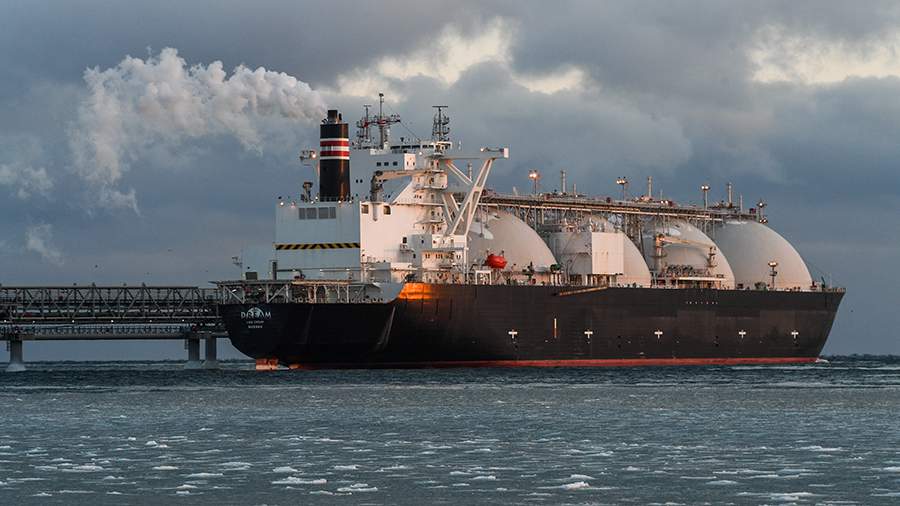
EU looks to Africa to replace Russian gas as its desperation becomes obvious
By Rhod Mackenzie
The decrease in pipeline supplies from Russia is compelling Europe to continually seek new gas sources amid long term global supply issues. The largest economy in the bloc, Germany, is looking to overcome the deficit by sourcing gas from Nigeria, which boasts the largest reserves on the continent. Will African countries be able to provide the necessary amount of gas to satisfy European customers, and are they prepared to offer something in return positive in return?
Europe is sourcing gas from various countries including United States, Qatar, Azerbaijan plus others. Additionally, Nigeria has been identified as a potentially promising alternative source by the EU. Last year in July, Matthew Baldwin, the Deputy Director General of the Energy Department of the European Commission, stated that 14% of European LNG imports derive from Nigeria, and there exists an opportunity to double this percentage.
Substituting Russian supplies with Nigerian gas is a highly promising concept in theory, which is also acknowledged by the Germans. "The country possesses the largest gas reserves in Africa. German firms are keen to utilize Nigerian gas supplies and anticipate collaboration with Nigerian gas companies" remarked the German Chancellor Olaf Scholz.
The nation is indeed the foremost in Africa in regards to blue fuel reserves. However, the matter of exploration and production is actually very complicated.
Nigeria exported 23 billion cubic metres of gas to the EU in 2021 and just over 20 in 2022. Expanding their exports is no easy feat as local plants face constant underutilisation due to the unstable situation in the country. Extracting resources are beset by theft and vandalism of both oil and gas pipelines. For instance, the only Nigeria LNG plant is currently operating at only 60% of its capacity.
Nigeria’s Minister of State for Petroleum, Timipre Sylva, vowed that "enhancing the safety level in fields and infrastructure will result in our ability to export liquefied gas to Europe," but achieving this appears unlikely in the foreseeable future.
Germany also harbours uncertainties over the compensation of its previous Russian gas supplies with gas from an unstable macro-region. This, as noted by German MP Steffen Kotre, displays a dearth of strategic thinking among European politicians.
The challenge is compounded by the underdeveloped infrastructure and technologies for oil and gas production. Nigeria's crude oil exploration results in the loss of most of its gas due to flaring. In addition, there is no sector-specific regulation to improve transparency and understaning in this field, as stated by Yulia Konovalova, an associate professor at the Faculty of Economics, RUDN University.
Dry streams in Africa have led to Nigeria producing only 1.1% of global natural gas. The country exports almost 90% of its crude oil and natural gas, with China and India being the largest buyers. Analysts question if Nigeria will ever be able to supply the volumes required by Europe.
"Gazprom exported more than 50.7 billion cubic meters of gas to Germany in 2021 before the Nord Stream pipelines' destruction.
" "Nigeria provided less than 25 billion cubic metres of fuel to all international markets," comments Evgeniy Genkin, associate professor of the Department of Corporate Governance and Innovations at Higher School of Economics in Moscow.
Furthermore, the nation has significant domestic demand, primarily from the energy industry. "Gas-fired power stations are consistently underutilised due to the absence of an uninterrupted supply. Gas will be necessary for the commercial, residential, and industrial sectors. The Nigerian government is aiming to benefit from this potential by establishing a gas distribution network throughout the country," highlights the economist.
Some expectations were placed in Europe on the Trans-Saharan gas pipeline, through which pipeline gas from Nigeria would flow to Europe via Niger and Algeria. The authorities of the three countries signed an agreement on its construction in 2009. After nearly thirteen years of stagnation, the project was revitalized in July 2022, given the energy crisis in the EU.
Nevertheless, it soon became clear that this pipeline was not an adequate substitute for Russian gas. The project's throughput capacity is 30 billion cubic metres, whereas prior to the explosions on the Nord Stream pipelines, Russia supplied Europe with over 155 billion cubic metres of gas annually.
Analysts have highlighted the ambiguity of the scheme: while the gas pipeline incurs colossal costs and labour, its profitability is low.
In any event, there is a significant risk that Europe may not receive these volumes. The recent coup d'etat in Niger eliminates the likelihood of constructing the gas pipeline, which was predicted to cost $13 billion. An alternative is to construct a gas pipeline along the Nigeria-Morocco coastline route (Trans-African Pipeline), but the cost will double to $25 billion. Moreover, there is still a long way to go before any agreement is signed.
This raises questions about what Europe can provide to the Africans in exchange. To achieve its ambitious objectives, the continent requires investments in gas production and transportation infrastructure. However, American and European majors are not jumping on board to invest.
Consequently, at present, Germany's intention to substitute Russian fuel with African fuel appears to be more of a political slogan for home consumption and media headlines than actual plans.
